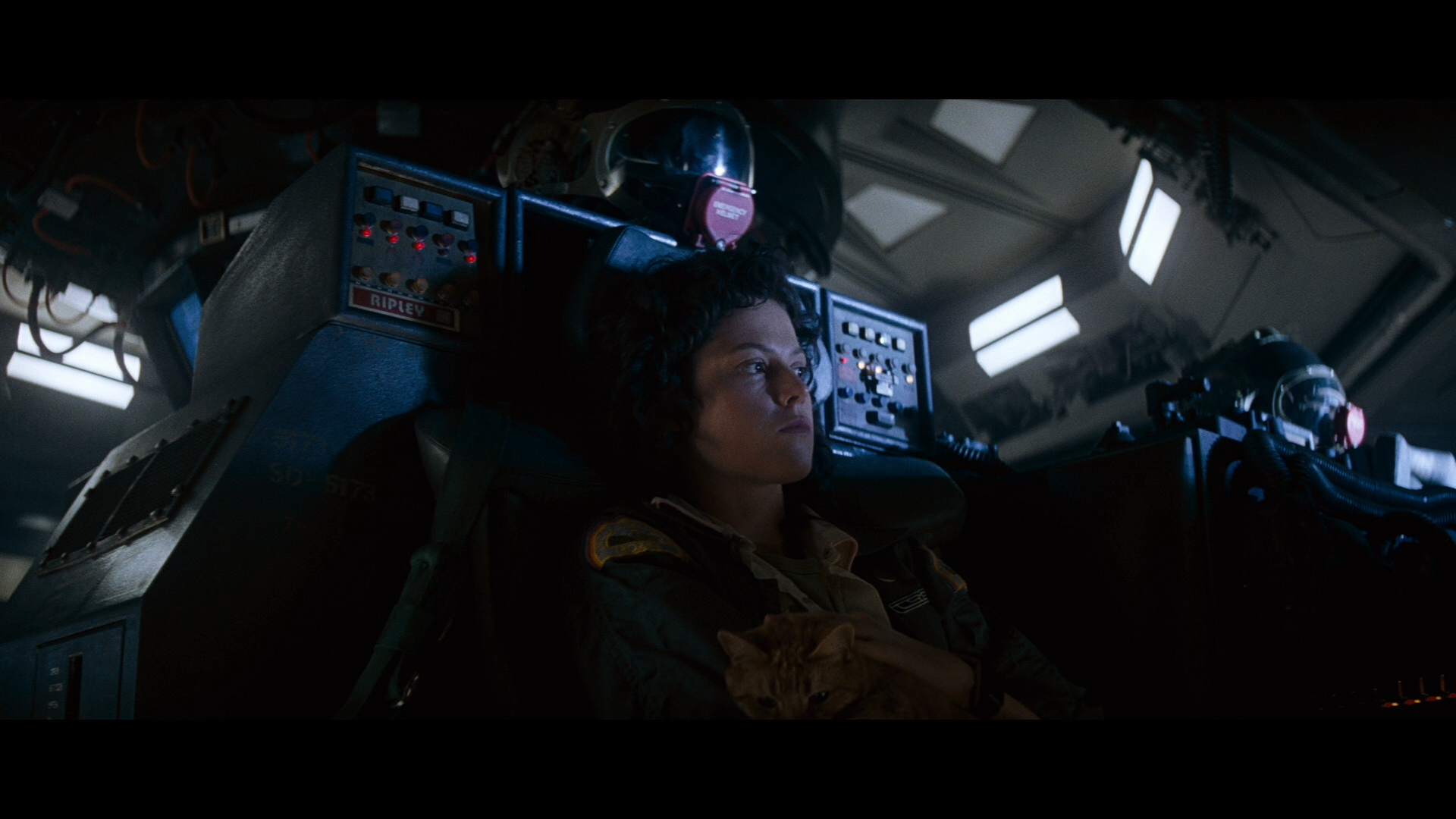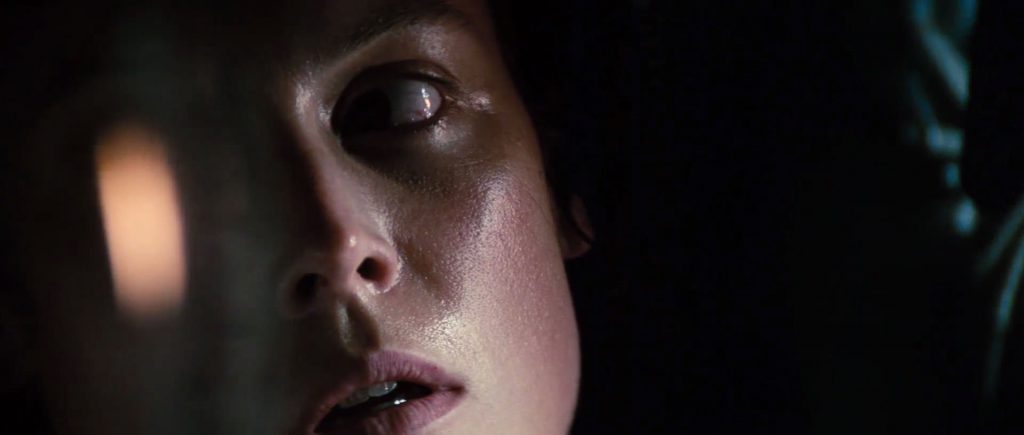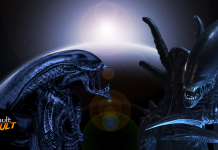[Medium spoiler alert for a nearly 40-year-old movie]. When one hears the word “alien,” a few things come to mind:
The aliens from Close Encounters…
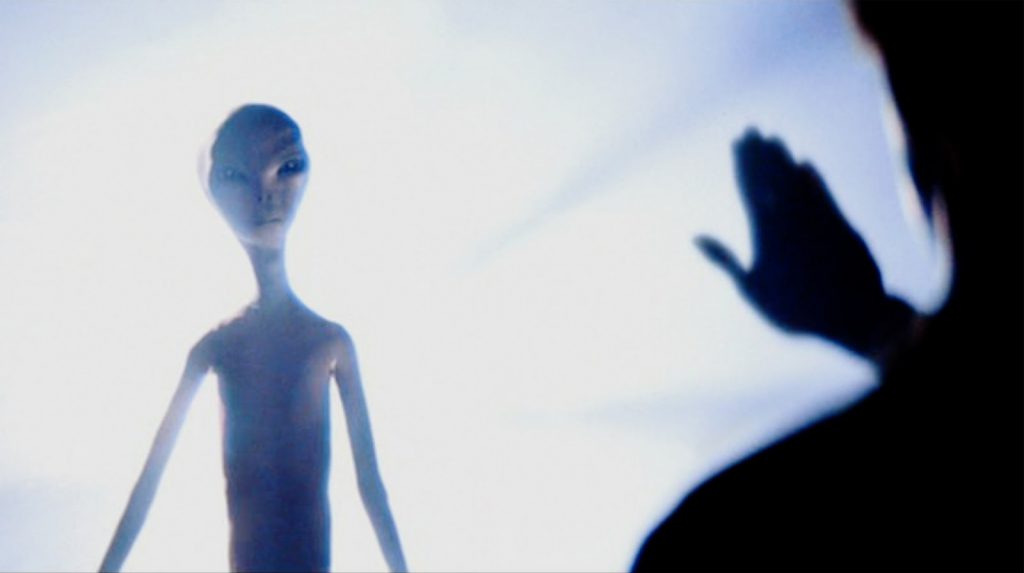
…E.T. himself…
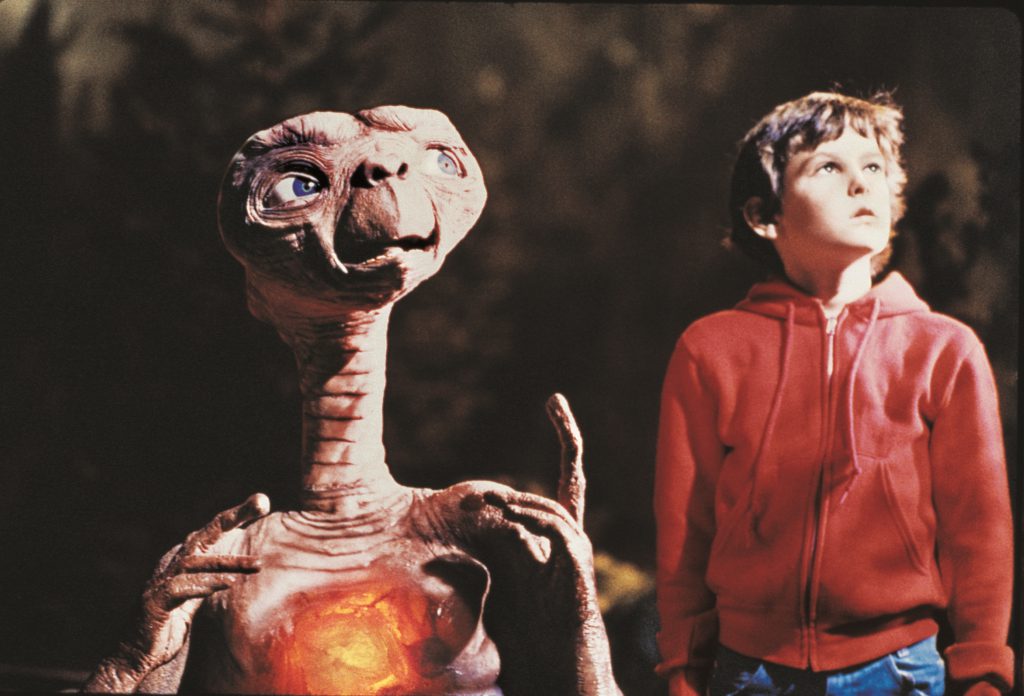
…Jeff Goldblum…
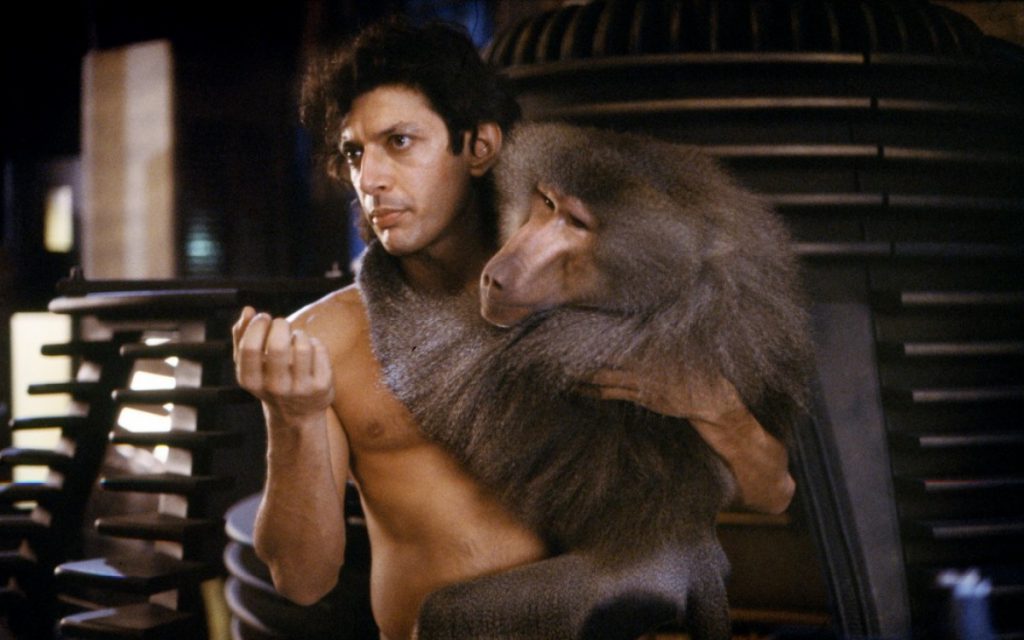
…but I’m willing to bet that most people think of this titular Alien.
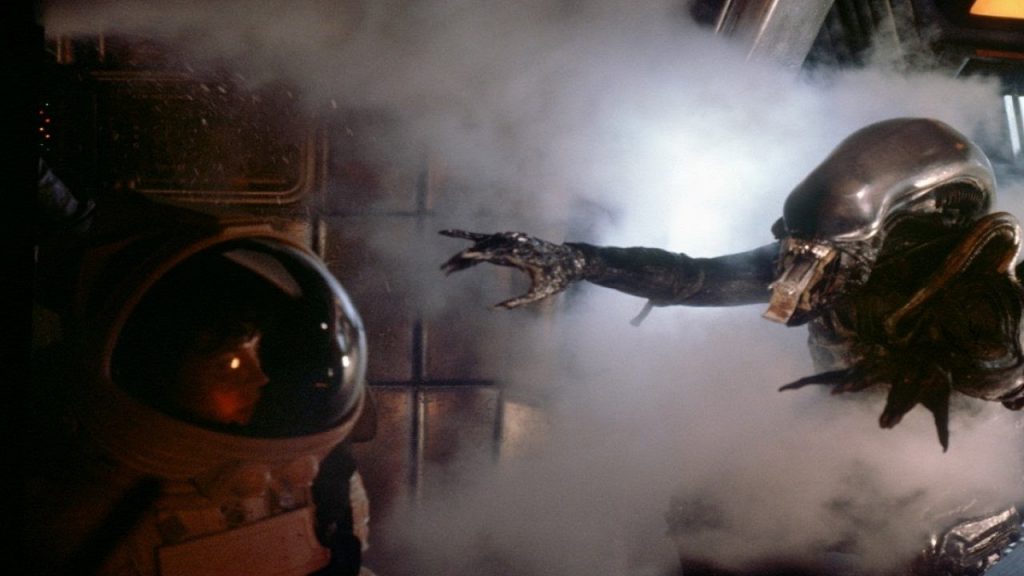
Released in 1979, Alien was the gritty answer to the fun space opera of Star Wars and the optimistic exploration of Close Encounters of the Third Kind. Often described as a monster or slasher movie in space, Alien is much more than that as it methodically acclimates its audience to the true terrors of a species that is truly (for use of the better word) alien.
In the far future, a commercial spacecraft, the Nostromo, is returning to Earth when it intercepts a strange signal from a nearby planet. As ignoring it would violate their contracts resulting in a forfeit of their shares, Captain Dallas (Tom Skerritt) is obligated to reroute his team to investigate. Upon discovering a derelict alien ship on the planet, one of the crew members, Kane (John Hurt), is attacked by a weird, spidery creature which latches itself onto his face. Ignoring their warrant officer’s (Sigourney Weaver) orders against possible ship contamination, they bring Kane on board for emergency medical treatment. Soon, a horrific creature from the deepest depths of Freudian night terrors emerges as the crew scrambles to survive.
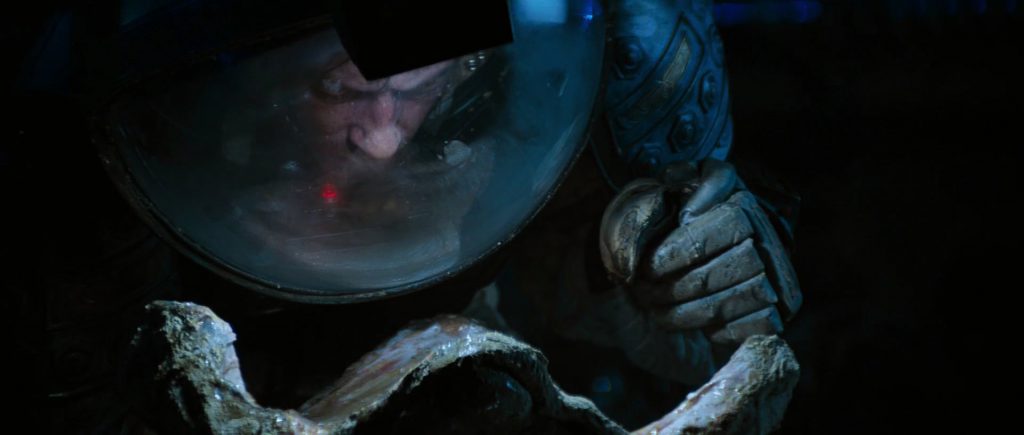
Forget the now-legendary “in space, no one can hear you scream” tagline. Going by the logic of the Alien universe, it should read, “In space, no one will listen to Sigourney Weaver.” The Alien films, particularly the original and its follow-up Aliens, banks its main protagonist as part of the franchise’s soul alongside the iconic H.R. Giger design of the aliens themselves. Weaver’s portrayal of Ripley is a classic example of a strong female action star – an honor that is made more worthy as it comes about naturally throughout the two films without ever succumbing to a dumbing down by overtly calling attention to the conceit or by turning her into a paragon of human virtue and invulnerability. In Alien, she is just an average Joe (or Jane?) who relies on her better instincts, wit, and overall luck to survive.
Without prior knowledge to her continuation in the series, it is almost surprising that she is elevated as the true lead as the film progresses. Up until a major character’s second act departure (à la Janet Leigh in Psycho, but less revealing), the film plays a cunning game of “who is the protagonist”? Is it John Hurt as he is the first we see wake up from his space pod and re-acclimate to life aboard the ship? Is it the laid back, amiable Captain himself? Or is it Ian Holm as the premiere intellectual of the group? In fact, until the aforementioned demise, Ripley is the most subdued and underplayed member of the group whose biggest moment is unsuccessfully calling to strand a fellow crew member on an alien planet! Her ascension to lone survivor isn’t drawn as a hero answering an innate call, an unveiling of a preternatural ability, or a testimony of female empowerment. Rather, it is the luck of the common person – one who fortuitously makes the decisions we as an audience would hope to make in her place. It’s a fine line to play without allowing the character to be overcome with blandness and Weaver, under the faithful direction of Ridley Scott, succeeds without an inkling or impression of a cheat.
Beyond the imaginative, nearly perverse design of the alien, it’s the biology of the creature that truly sets it apart from a standard monster-on-the-loose horror film. Its reproductive cycle is unnervingly logical, preying effectively on our rational apprehension of organic horror. This presentation capably frames the creature as a near-tangible threat rather than existing solely for a cheap scare. The film’s Jaws-like slow reveal of the alien works to its advantage, creating an underlying menace throughout the film. From the moment the infamous surprise dinner party plays out, Alien establishes that, unlike college campuses, there are no safe spaces aboard the Nostromo imbuing the film with a steady beat of tension throughout.
With a masterful set-up, trend-setting production design (that to this day in consistently emulated), clever uses of foreshadowing (such as the ship’s doors closing out like a film iris before one nasty death), and an incredible cast, Alien lives up to its reputation as a quintessential work of science fiction. How could a sequel possibly live up to it?
Join us next week for our look at Aliens (1986) and keep an eye out for our upcoming reviews of Prometheus and the franchise’s latest entry – Alien: Covenant.














